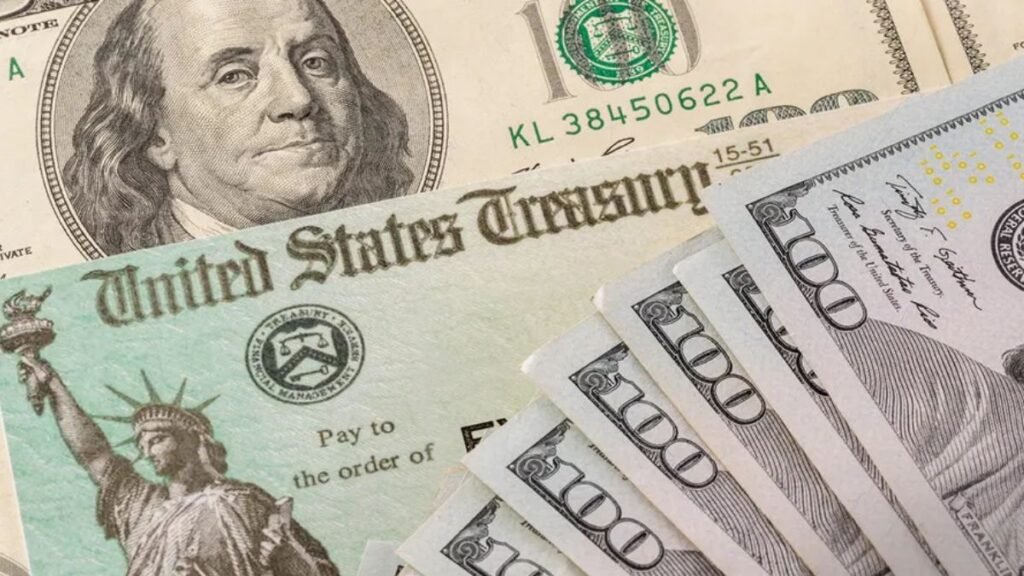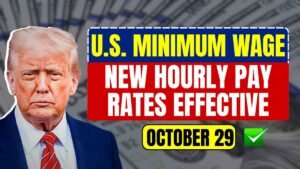Over the past few weeks, a claim has spread like wildfire across social media. Short videos on TikTok, Facebook posts, and threads on X (formerly Twitter) all asserted the same thing: that every American citizen would receive a direct federal stimulus check of $2,000 in November 2025. Many posts also stated that the payment would range from $1,390 to $2,400 and would be automatically deposited into the accounts of “eligible citizens” without any application required.
These posts spread so rapidly that millions of people believed them to be true. In times of economic uncertainty, the prospect of a large cash payment naturally sparks hope. But not everything that goes viral on social media is true. That’s the case here—and it’s crucial to understand the reality.
IRS Statement: No Stimulus Checks Coming
The Internal Revenue Service (IRS) has categorically denied and debunked this claim. The IRS confirmed that:
- There is no new federal stimulus payment of any kind scheduled for November 2025.
- The claims circulating on social media have no connection to any official source.
- Most of the posts are either rumors, misinformation, or potential attempts at fraud.
An IRS spokesperson explicitly stated that there is currently no program in place that authorizes a new $2,000 payment.
The IRS’s direct and firm statement in this matter demonstrates that this claim is purely an internet fabrication, not a government plan.
IRS Warning: Do Not Share Personal Information
The IRS specifically warned that many of the posts and links are fake and designed to trick people into giving up sensitive information.
According to the IRS:
- The agency never requests bank account numbers, Social Security numbers, OTPs, or any kind of fees via phone, email, text message, or social media links.
- Any message that says, “Provide your bank details and receive a stimulus check,” is completely fraudulent.
The IRS’s policy is clear—
It only shares information through IRS.gov or official government channels. In other words, if the information is coming from anywhere else, it’s not reliable.
How the rumor started: The American Workers Rebate Act
This whole misunderstanding stems from an incomplete and unpassed bill.
The proposal, called the American Workers Rebate Act, suggested that:
- Based on family income and size,
- Amounts ranging from $600 to $2,400
- Could be given to eligible households.
But the important thing to remember is:
- This is only a proposal.
- Congress has not passed it.
- No funds have been approved.
- No distribution date has been set.
This means the program is currently only on paper. Until Congress approves it, there can be no talk of any stimulus payments.
The misunderstanding arose on social media regarding this proposal. Some creators presented it as if it were already law and that payments were imminent.
Pandemic Stimulus Payments and People’s Expectations

Between 2020 and 2021, the US government issued economic relief checks in three rounds during the pandemic:
- First check—$600
- Second check—$1,200
- Third check—$1,400
These payments provided significant relief to people during difficult times. This is why whenever a new stimulus payment trends, people tend to believe it.
But now the circumstances are different:
- The pandemic is over.
- Economic relief programs have ended.
- The government has not announced any policy for new stimulus payments.
Therefore, the possibility of any new payment is very low at the moment.
Recovery Rebate Credit: No More Claims
According to the IRS, all claims related to the Recovery Rebate Credit have been processed.
Key points:
- The deadline for applications was April 2025.
- No new claims will be accepted after that.
- The IRS issued pending payments in December 2024.
- All eligible people received the money by January 2025.
This means that pandemic-related payments are now completely closed and there will be no new payments.
Why is social media spreading misinformation?
Creating viral content is easy. Many accounts understand people’s desires and use topics like “instant money,” “stimulus without application,” or “government aid” to:
- Reach more people.
- Increase views and followers.
- Generate advertising revenue.
But such creators play with public expectations. They often present incomplete information as “breaking news.”
Could there be a stimulus payment in the future?
This entirely depends on the decision of Congress. If the economic situation deteriorates in the future, a recession occurs, or the government introduces a new relief plan, then there may be a possibility of new stimulus payments.
But currently:
- No proposal has been passed.
- No funds have been released.
- No date has been set.
Therefore, there will be no stimulus payment in November 2025.
How to Avoid Scams
U.S. officials advise people to be vigilant. Follow these tips:
- Always compare information with IRS.gov, WhiteHouse.gov, or Congress.gov.
- Stay away from unfamiliar websites.
- Do not click on social media links.
- Never give your bank or SSN information to anyone.
- If someone asks for a “fee for government payment,” it is definitely a scam.
Remember one simple rule:
The government never asks you for money to give you money.
Conclusion
Simply put —
There will be no $2,000 stimulus check coming in November 2025.
Any information circulating on social media is a rumor or misinformation. The IRS has completely debunked it and denied any new stimulus payments of any kind.
Until Washington passes a new law:
- There will be no payments.
- There will be no applications.
- There will be no forms to fill out.
People should not trust viral posts and always verify information from official sources. Your safety is in your hands—especially when misinformation spreads so quickly online.
FAQs
Q. Is the IRS sending a $2,000 stimulus check in November 2025?
A. No. The IRS has confirmed that there is no new federal stimulus program scheduled for November 2025.
Q. Where did the $2,000 rumor come from?
A. The false claim appears to be linked to discussions around the American Workers Rebate Act, a proposal that has not been approved by Congress.
Q. Could these viral posts be scams?
A. Yes. The IRS warns that messages asking for personal or banking information to receive a stimulus check are likely fraudulent.
Q. Are any pandemic-related stimulus payments still available?
A. No. Pandemic-era programs have ended, and the deadline for the Recovery Rebate Credit closed in April 2025.
Q. How can I verify real IRS announcements?
A. Always rely on IRS.gov or official government channels. The IRS does not send payment information through social media, unsolicited messages, or random links.


